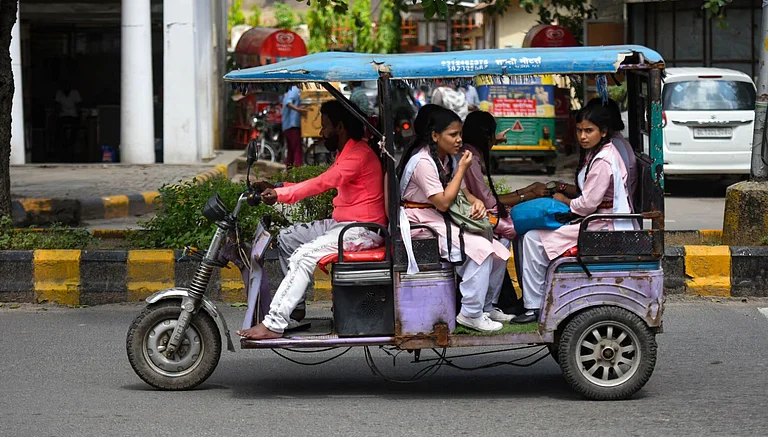I'm sure Bill Aitken hopes that when he reaches eternity, he'll find the onlyway to get there is by meter and narrow gauge railways. If he has his way, there certainlywon't be any cars or planes, there won't even be any main lines, they'llall be branch lines, branches of what, I'm not quite sure. He writes scornfully of"the anonymity of the utterly predictable broad gauge". Yet although smallrailways give Bill his intimations of immortality, it was on what I assume was a broadgauge, mainline journey, from the Kumbh Mela at Allahabad in 1960, that he came to realise"the system created by the mind of George Stephenson does echo a grand design worthyof the Almighty". Despite his love of small lines there is obviously a place for allrailways in Bill's heart, if not in eternity.
This book is unashamedly nostalgic. Bill has written of steam's "magicaldimension which only intuition can grasp". He reminded me of nights being rocked tosleep in old-fashioned meter gauge rolling stock. He made me envious of the quaint narrowgauge lines I will now never be able to travel. He has related many delightful storieslike the ticket clerk in a sleepy station whose commercial interests were aroused, and thejudge who perambulated at midnight along the platform in his pyjamas accompanied by hisentourage of chaprasis and servants who had to turn out in full dress uniform. He hastravelled on the footplate and noted the skill and discipline of steam crews, and theirvery personal relationship with their locomotives. But there is more to this book thannostalgia. It is a passionate appeal for the conservation of steam and all that went withit.
But at the same time, Bill acknowledges that to be a conservationist does not meanbeing a Luddite. He castigates Madhavrao Scindia for his lack of care for conservationwhen he was railway minister and yet acknowledges "he was one of the most involvedrailway ministers capable of taking decisions on their transport merits".
There is always a danger that enthusiasts for steam will forget that decisions have tobe taken on "their transport merits" if Indian railways are not to be consignedto the dustbin of history. So far the delays and dangers of travelling by road haveprotected Indian railways from the competition railways in other parts of the world havefaced. But now that a start has been made on constructing modern roads linking the maincities, they will have to improve their timings and the frequency of their services.
Bill accepts this. He is not so blinded by his enthusiasm for the past that he fails tosee the merit in modern railways. At one stage British Railways opposed all attempts torevive steam as a tourist attraction believing it gave the system the wrong image. Now theprivately-run companies have a more enlightened attitude, and realise that the attractionsof the past can help sell rail travel in the present.
Indian railways too are aware of the attraction of steam. I have twice travelled behindthe gallant Fairy Queen, the oldest running steam engine in the world, and now there hasbeen an inaugural run of a restored meter gauge engine in Assam. Delhi's RailTransport Museum is also evidence of Indian Railways' commitment to their past, and Iam particularly happy that the Darjeeling Himalayan Railway is now a World Heritage Site,because my father was a director of the railway.I'm also delighted to be a foundingmember of the Indian Steam Railway Society. But like Bill Aitken, I also praise railwayministers who take decisions for operational not political reasons because the future ofthe railways is as dear to me as the past.






















